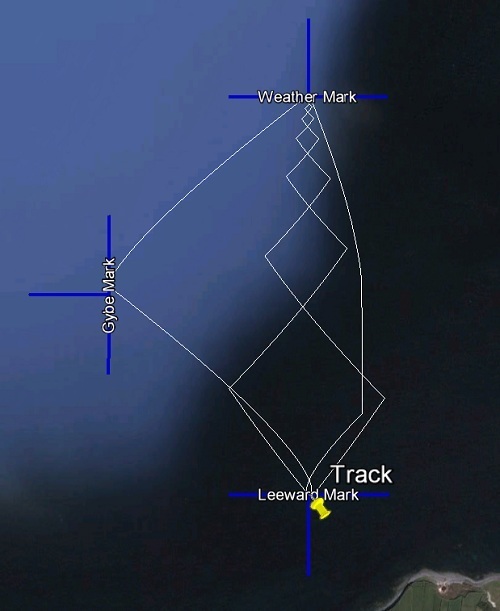
Of Laylines and Beats
By Dermot Tynan, almost 13 years ago.
This time, I set the simulation granularity a bit smaller, so the updates are more regular and there are more data points, which explains the curved route in some cases. You can click on the image for a slightly larger version. An Olympic course is known to sailors as a "triangle and sausage", because you sail upwind to the top mark, turn onto a broad reach to the gybe mark, gybe around, and broad reach down to the leeward mark. From there you beat back up to the windward mark, and then turn dead downwind to the finish line at the leeward mark. A true Olympic course would put the start and finish line about a third of the way up the beat, shortening the first leg somewhat, but also making for an upwind finish as you would have to sail around the leeward mark and beat to the finish. I skipped all that!
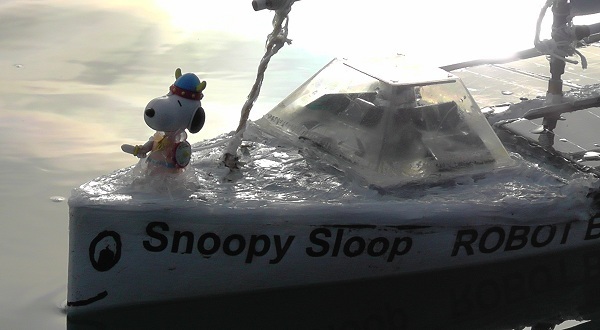
Bon Voyage, Snoopy!
By Dermot Tynan, almost 13 years ago.
Today, March 23rd, 2013, Team Joker are planning to launch their ninth boat, Snoopy Sloop. This has been an educational (and obviously fun!) experience for Robin Lovelock and his fleet of robotic warrior boats. Here in Beoga Beag land, we wish them well.
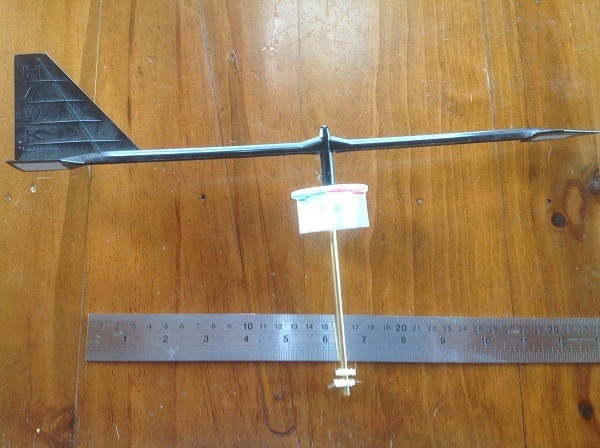
Wind Direction Indicator
By Dermot Tynan, over 12 years ago.
Now that the hull is looking solid, it's time to start thinking again about the wind direction indicator. It is possible to detect wind speed by using an ultrasonic sensor and receiver, and measuring the delay between the two. You need to account for temperature changes and gusts can cause issues, but it is fairly reliable and has no moving parts. Generally, you use two transducers offset by a distance of perhaps 20cm for the North/South computation, and another pair in the East/West direction. I think if we were using a larger hull, such as a 4m boat, this would be a good plan. But, for the 2.4m (or the 1.2m) boat, it's just too big and awkward. Also, this jury is undecided about how well they would work, over the long haul.
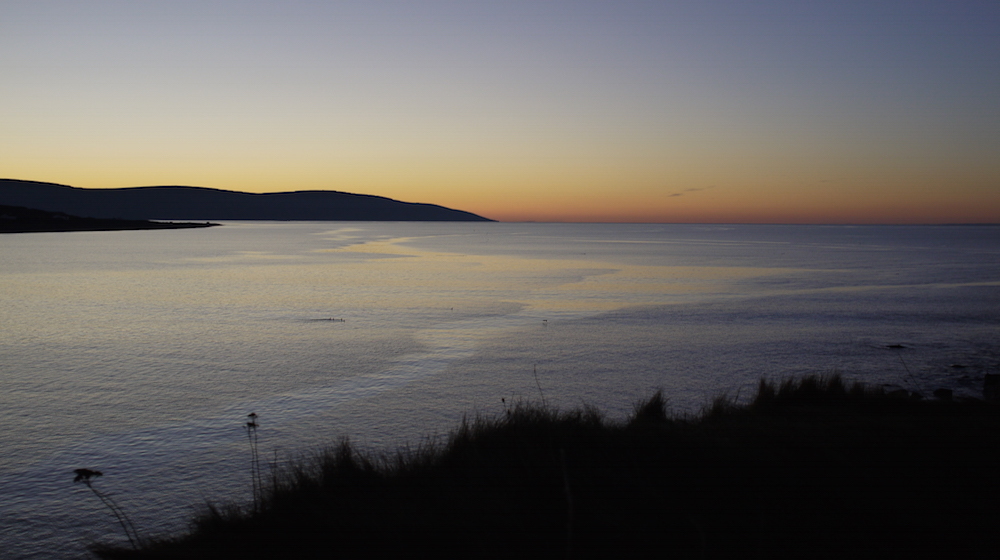
Mission 001 - Galway Bay
By Dermot Tynan, over 12 years ago.
As the hull is now watertight, and we're mere weeks away from having a sealed hull with keel and rig, it's OK to start looking at actually getting this thing to sail.
Up until now, I've been somewhat obsessed with getting the physical aspects of the boat to a certain juncture. The reasoning is simple; until there's a boat, all of this other stuff is just a waste of time. Well, now there's a boat...
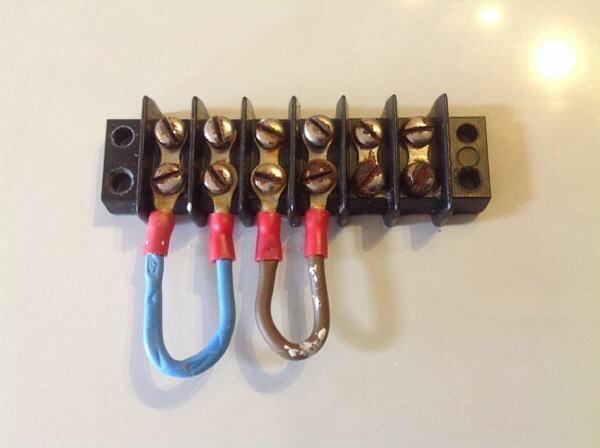
First signs of weathering.
By Dermot Tynan, over 12 years ago.
In order to test the spiffy, new Wind Direction Indicator mentioned in The Marvel of 3D Printing..., I assembled the mechanical components (without the potentiometers) and mounted it outside. As we live in a wind-swept area, with a high concentration of sea salt in the air, it was a useful test of how the system would perform. What I couldn't test was the effect of high temperature/humidity in a salt-water environment. To do that, I'd have to move to the Caribbean (which seems like a good idea, given the Irish summer we've had so far!).
Upcoming Missions
- Galway Bay Loop, Waiting for Vessel Availability
Search
Recent Posts
- May 2023 (1 post)
- April 2023 (1 post)
- March 2023 (1 post)
- February 2023 (2 posts)
- March 2022 (3 posts)
- March 2021 (1 post)
- August 2020 (1 post)
- May 2019 (1 post)
- April 2018 (1 post)
- November 2017 (1 post)
- April 2017 (1 post)
- November 2016 (1 post)
- September 2016 (1 post)
- August 2016 (1 post)
- January 2014 (2 posts)
- October 2013 (7 posts)
- September 2013 (1 post)
- August 2013 (3 posts)
- June 2013 (3 posts)
- May 2013 (4 posts)
- April 2013 (3 posts)
- March 2013 (9 posts)
- February 2013 (8 posts)